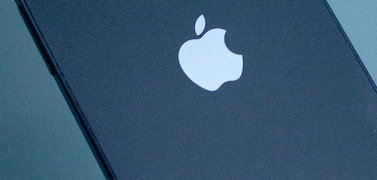By Mark McSherry
Company share buybacks soared 22% to a record $1.31 trillion in 2022, according to Janus Henderson.
Share buybacks have now tripled in value in 10 years, compared to a 54% increase in dividends.
In 2012, share buybacks were just half the size (52%) of dividends — but almost equalled them (94%) in 2022.
“The world’s top 1,200 companies bought back a record $1.31 of their shares, almost equal to the $1.39 trillion the same firms paid in dividends during the year,” said Janus Henderson.
“Moreover, the total was 22% higher than 2021, which had set the previous record.
“By far the biggest contributor to growth in 2022 came from the oil sector, in which companies bought back $135bn of their own shares, more than four times as much as 2021.
“Almost all this oil-sector cash was spent by companies in North America, the UK and to a lesser extent Europe.
“The rapid growth in buybacks is not a one-year phenomenon. Astonishingly, buybacks have almost tripled in value since 2012 (+182%), easily outpacing the 54% increase in dividends over the same period.
“Every region, almost every country and almost every sector have seen them grow strongly. The biggest jump came in 2018 and was mainly caused by US technology companies ramping up their buyback programmes.
“The consequence of this rapid growth is a significant increase in the importance of share buybacks.
“In 2012, globally they were equal to just 52% of dividends, ranging from 3% in emerging markets to 102% in North America.
“In 2022 the global figure had jumped to 94%, ranging from 18% in emerging markets to 158% in North America.”
“The sector variation is even starker. In the media sector, for example, which includes Facebook owner Meta and Google owner Alphabet, neither company pays a dividend, but both are big buyers of their own shares.
“The global value of the sector’s share buybacks was 8x larger than dividends paid in 2022.
“By contrast, in the high dividend-yielding utilities sector, dividends were 8x larger than buybacks. Adding buybacks and dividends together, the so-called total shareholder yield, significantly reduces the differences.
“The figures are very concentrated in a few companies.
“Apple is one of the world’s largest buyers of its own shares, worth an astonishing $89bn for its financial year 2022, almost 7% of the global total.
“The ten largest buyers accounted for almost a quarter of the global total and only one of these, Shell from the UK, was outside the US. Nestle was one of Europe’s largest buyers of its own shares last year.”
Ben Lofthouse, Head of Global Equity Income at Janus Henderson, said: “The rapid growth in buybacks in the last three years reflects a strong profit and free cash flow performance and a willingness to reward shareholders without setting unintended expectations for dividends.
“Buybacks cannot always be relied on to enhance shareholder returns.
“Their discretionary nature makes them more volatile – as evidenced in 2020’s Covid disruption when they fell dramatically.
“In addition, they don’t always create shareholder value and some shareholders who rely on an income stream from their investments often prefer dividends. The global cost of capital is now significantly higher than in the last few years.
“The big question is what this will do to share buybacks in the months and years ahead. When companies could essentially access finance at almost zero cost, there was a huge incentive to issue debt and buy back shares as this added immense value.
“For companies generating very large amounts of cash, like Apple or Alphabet, this is not a major factor. For others, especially in the US, that have used borrowing to fund buybacks, the calculations will now be much more finely balanced.”
